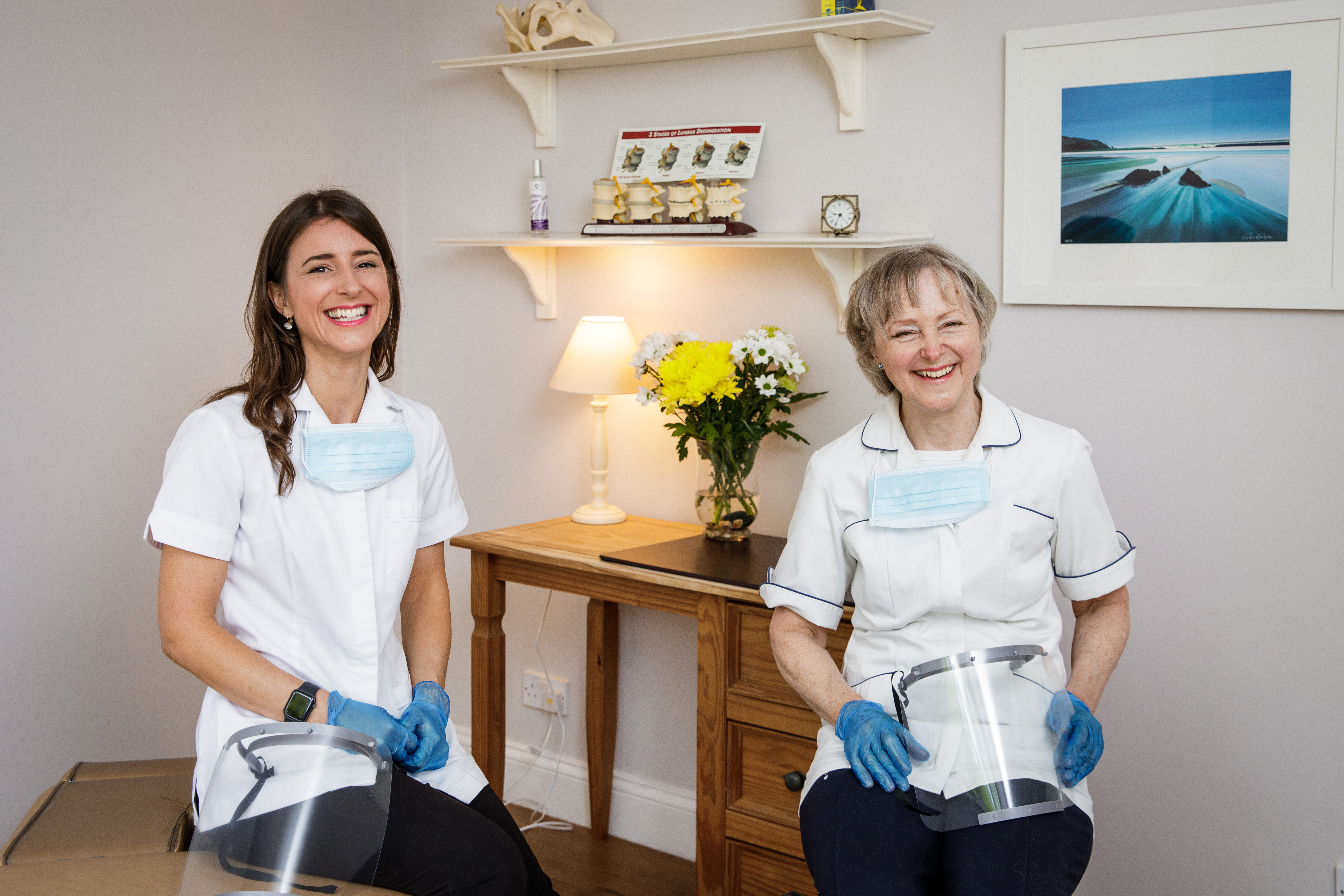COVID-19: 3 ways to stay emotionally fit for you, your family and your work.
We are collectively experiencing the same source of trauma and stress: COVID-19.
This common trauma means all our nervous systems are activating in response. We face the physical threat of a global pandemic and the emotional threat of extreme societal change we have no control over. Our fight-flight system is on. We are in a heightened state, and we are more on guard than normal.
Since the lockdown started, my patients kindly keep asking me how I am doing. Previously an occasional question, now a universally recurring topic across many a phone call or virtual consultation, as I book patients in for when we reopen on the 12th June.
Ordinarily I would not encourage the conversation to stay on myself for too long, but what is ordinary about this unprecedented situation?
I think this is because they want to hear their practitioner is not reacting from the fight-flight system. They need to feel reassured that I can respond appropriately to their needs and trust that I have their best interests at heart.
This idea is applicable to any healthcare practice or supporter of another’s well-being. Collectively healthcare providers and anyone caring for another’s welfare can only offer the best care if we stay grounded and calm in the midst of this pandemic. I take my hat off to all essential workers as they had to apply this at the highest point of our community’s fear. During phase 2 whilst the fear is still there, we now have the practicalities of the new reality all businesses and schools must now face.
Fear is dominating, and it demands our attention.
If we make decisions about how we are conducting our practice, work or care as a reaction to our own emotions, it will affect how we work with our patients, colleagues and how we care for our loved ones. Our focus will be on our own fear rather than our patients or loved one’s experience.
How do we stay calm and present?
There are a few self-care practices that can help calm our nervous systems down during the challenging times ahead. They involve a little self-compassion, gratitude, and a healthy routine.
1) Start with self-compassion.
Shifting our internal language to kindness and compassion, allows ourselves a moment to be in the present and notice what we are actually experiencing. This state of mindfulness or awareness gives us clearer information as to what we need to take care of ourselves in the best possible way.
What could this sound like?
- Without self-compassion: "I’m so stupid for making that mistake!"
This statement ensures we will not know why or try to understand how we messed up. It only reminds us we are "stupid.” - With self-compassion: “Geez, it sucks I made that mistake. What’s going on with me that I didn’t catch that? Oh, right… I’m stressed. It’s OK. I’ll figure it out I just need to schedule in a break.”
Self-compassion gives our minds a chance to evaluate our mistakes and find a healthy path forward. It helps our system remain calm and in the present, which allows us to respond—not react—to situations around us. This space allows us to take a deep breath before we take another next step, do the research we need to do or talk to the people we trust.
2) Consider grounding in gratitude.
Pausing to deliberately focus on gratitude is not an avoidance or denial of our difficulties. It is balancing the negativity in our minds. It can be far easier to dwell on the negative, leaving little room for positive thoughts to co-exist. In reality, it is the weight we give to each emotion that determines which is stronger.
So, what are three things you are grateful for today? Did you eat a meal you really enjoyed? Are you proud to help your family by shopping for them? Did you make someone smile, even through a mask?
Thinking of simple things we can be grateful for, allows us to move back and forth more easily between emotions, rather than feeling stuck in one. This helps our nervous system avoid extremes, bringing it back to a sense of calm and grounding.
3) Create a healthy routine.
Developing a routine that fits your life is crucial for feeling grounded and safe. By creating a foundation of stability in our daily lives, routines help us shift how we are holding other circumstances around us. Either we hold ourselves in fear, or we hold the knowledge that although we will experience moments of fear, we can also experience calm. Can we control the length of this crisis? No. Can we make choices that reflect our desire for health and safety for ourselves and our communities? Yes.
A routine is self-care—a response to your needs. Are you getting enough downtime? Does your diet serve you well? Are you drinking enough water or getting enough fresh air?
Gratitude and routine help us to be present and calm, not focused on the future unknown. We can acknowledge the unknown without getting stuck in the fear and worry.
One final thought
These are a few basic ways we can get through this shared trauma and continue providing the best possible care for the people relying on us. If we stay committed to tending our own needs, we will be better prepared to help others.
Take a breath and notice your body, notice your mind, what does it need so that it can better serve you and in turn your community? How are you doing…?

With thanks to Jersey Crabshack and our Photographer - https://www.andylegresley.com
